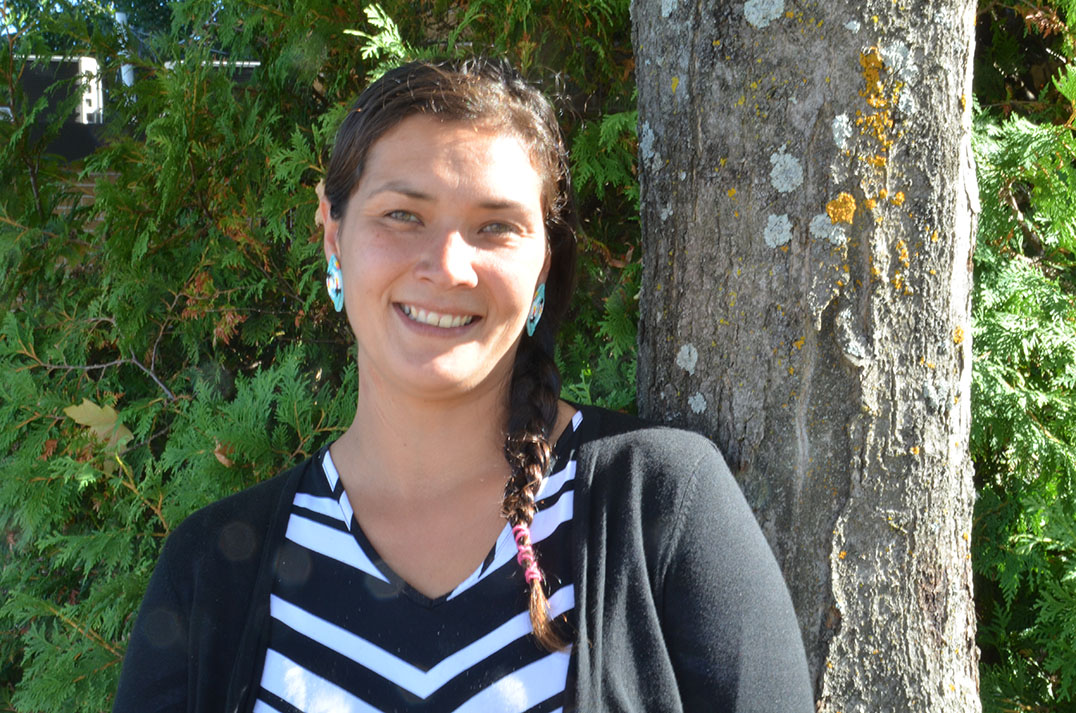TORONTO—Ontario Premier Kathleen Wynne and her education minister Mitzie Hunter visited Toronto’s Lawrence Park Collegiate Institute on September 6 to announce the opening of public consultations on the province’s proposed new curriculum and to provide details on the new report cards, both of which will be introduced into schools for the 2018-19 academic year.
“I have always believed that our work to build a fairer, more innovative Ontario starts in our publicly funded education system,” said Premier Wynne in a release following the announcement. “We have great schools, but we always need to look for ways to make our children’s schools even better. We need to give kids the variety of skills they’ll need in a fast-changing world. This curriculum refresh will build on all the progress we’ve made and ensure we’re giving students the skills, supports and opportunities to make their mark in their careers, their communities and the world.”
“In order for Ontario to continue to support student well-being and promote equity in our publicly funded education system, we must be positioned to meet the growing and ever-changing needs of all students today and in the future,” said Ontario Minister of Education Mitzie Hunter. “We will work with all of our partners to ensure students have access to the most current and up-to-date curriculum possible, from Kindergarten to Grade 12.”
The proposed changes to the curriculum have met with positive responses from parent and science groups, as well as business leaders from across the province, but Rainbow District School Board Trustee Larry Killens is skeptical of the changes and their timing.
“I read very quickly the news release from Ms. Wynne,” said Mr. Killens. “There are no solid details that I can see, however I will say as the trustee from the Manitoulin Island (and not speaking for the board), based on my experience for 20-plus years, I can see the Rainbow District School Board and I would go out on a limb and say other public school boards in Ontario have not been kept in the loop as well at all—unless the directors of education are keeping a secret. I suggest that highly unlikely and fatal to the level of trust if true.”
Mr. Killens challenged the premier’s record on education. “How many times has Ms. Wynne and her ministers, improved, refreshed, redesigned and promised better?” he asked. “We in Rainbow Country, in most if not all EQAO scores, are lower than the provincial average.”
He went on to note that “constant news articles of accommodation reviews mandating school closures happen too frequently. We now have basically a moratorium on accommodation reviews provincially,” he said. “If I recall, I have a CBC clip where I presented a motion to do just that (write the government to encourage a moratorium), our board chair stated, and I quote, ‘This will not happen; not in my lifetime’.”
As for the new report cards, “been there, done that, several times,” said Mr. Killens. “Parent involvement? Been there, not done that. I have as a trustee asked to be at parent/teacher interview nights to share with parents, and thus be accountable and obtain first hand concerns from parents about their student’s education and I have been refused access to the school.”
As for the new curriculum—“been there, constantly doing that and yet we still announce how we are failing our kids,” he said. He pointed to mental health issues, which he characterized as “a hot button topic of huge proportions” as an example. “The Rainbow Board has made an effort with the limited resources they have, by hiring social workers and mental health workers,” he said. “I think five in each area. How does that small number serve 13,000 students?” he asked.
But other voices are lauding the steps forward. “Students need a curriculum that focuses on building skills like problem solving and creative, critical thinking,” said Bonnie Schmidt, president of Let’s Talk Science and chair of the Canadian Leadership Taskforce on Education and Skills’ Information and Communications Technology Council (ICTC). “We are pleased that the government is taking a proactive step by providing resources that will help students develop these essential skills and the characteristics needed to thrive in an increasingly interconnected world.”
“People for Education is pleased that the Ministry of Education is moving toward a focus on the student competencies that are essential for success in school and life,” confirmed Annie Kidder, executive director of People for Education. “Our work with Ontario educators, scholars and policy-makers over the past four years has shown how critical these areas are for student learning and success—from Kindergarten right through to Grade 12, post-secondary education and employment. Embedding these transferable skills in the curriculum and updating the way we report to parents represent an exciting opportunity for Ontario to take a leading role in the global movement toward broader goals for education and broader measures of success in our schools.”
Business has also reacted well to the new approach to learning outlined in the announcement. “IBM Canada supports Ontario’s work toward adding these transferable skill sets to the Kindergarten to Grade 12 curriculum,” noted IBM Canada President Dino Trevisani. “As a leader in cloud and cognitive technologies, we aim to employ young people with these skills, paired with modern Science, Technology, Engineering, Arts and Math (STEAM) capabilities, to help us reshape this industry and create a better, brighter future for generations to come.”
According to the announcement, Ontario’s updated school curriculum “will be developed through the public consultations with the goal of improving student achievement in core skills such as math and increasing emphasis on transferable life skills that can help students of all ages meet the changing demands of today and tomorrow. Communication, problem-solving, critical thinking, creativity and global citizenship are skills that will help Ontario students thrive as they grow up in a changing, interconnected world. Beginning next school year, new report cards will better track a young person’s development of these essential and transferable life skills.”
By consulting with students, parents, teachers and other partners, the province hopes to help students take full advantage of their education experience, notes the announcement. The plan is to accomplish that goal with a new curriculum that “better engages every aspect of a young person’s interests and potential.” The new curriculum also aims to “place an increased emphasis on equity and well-being, including the effects that physical activity, bullying and mental health can have on student success in and out of the classroom; update provincial assessment and reporting practices, including EQAO, to make sure they are culturally relevant, measure a wider range of learning and better reflect student well-being and equity; and enhance parents’ access to information about how their children are doing in school.”
RDSB Director of Education Norm Blaseg said that the RDSB has “nothing to share. The ministry has not shared any details with boards.” Boards of Education, it appears, were caught off-guard by the announcement. Mr. Blaseg said that he remains hopeful that “the ministry will head the advice of boards before they make any dramatic changes.”
Mr. Killens has a theory: “An election is around the corner and any promise, any predictions, any new ideas,” he said, prompt him to ask “Why now? Why not two and three years ago? I would encourage specifically those two persons, the premier and the minister to fix and put in place what you have now.”
The public consultation on student assessment will be conducted by the premier and the minister of education’s six education advisors led by Dr. Carol Campbell. Those advisors include two new advisors Dr. Carl James, Jean Augustine chair in Education, Community and Diaspora, Faculty of Education at York University; Kahontakwas Diane Longboat, senior project manager guiding directions implementation at the Centre for Addiction and Mental Health, as well as a ceremonial leader, educator, teacher of Indigenous spiritual ways and healer, and four current advisors who have been reappointed for an 18-month term. Those four are Dr. Campbell, associate professor of Leadership and Educational Change at the Ontario Institute for Studies in Education at the University of Toronto (OISE), Dr. Jean Clinton, clinical professor in the Department of Psychiatry and Behavioural Neurosciences at McMaster University; Dr. Michael Fullan, professor emeritus and former dean of the OISE at the University of Toronto; and Dr. Andy Hargreaves, the Thomas More Brennan Chair in the Lynch School of Education at Boston College.




